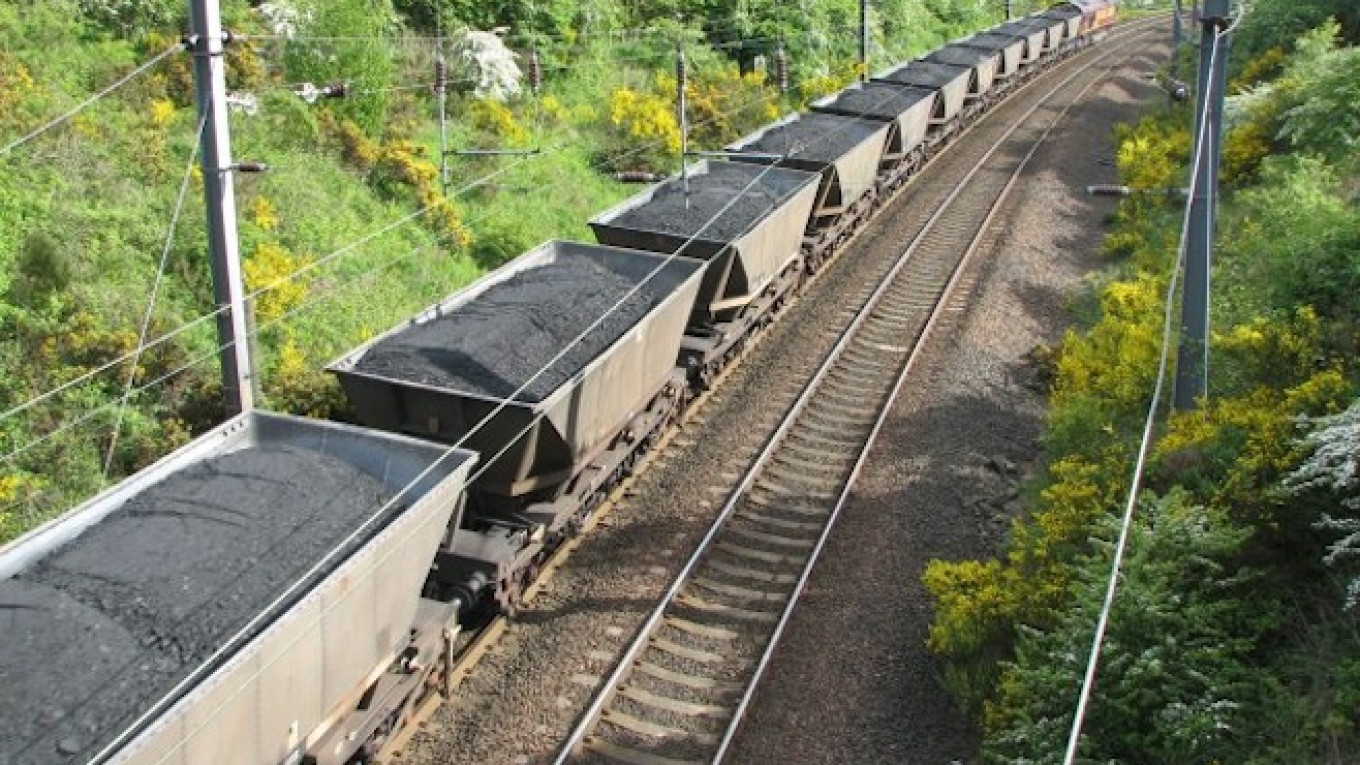WARSAW — More than 200 Polish miners blocked trains carrying Russian coal at a border passage in northern Poland to protest against the cheaper Russian coal being brought in at a time when local mines are struggling, mining union leaders said Wednesday.
Poland, which uses coal to generate about 90 percent of its electricity, produced 76.5 million tonnes in 2013. It exported 10.6 million tonnes but at the same time imported 10.8 million, mainly from Russia and the Czech Republic.
Imported coal proves cheaper than that from Poland's largest miners such as Kompania Weglowa or JSW. Faced with high production and labour costs, as well as falling prices and demand, Polish mines are suffering losses.
"Right now about 80 percent of tenders for coal supplies to units run from the state budget are won by suppliers of imported coal, because they offer dumping prices," said Jaroslaw Grzesik, leader of the mining Solidarity union.
Dominik Kolorz, who heads the Solidarity union in the coal-rich Slasko-Dabrowskie region, said the miners may block the Braniewo-Mamonowo passage until a government representative is sent to listen to their demands.
Earlier this year Poland said it was considering sanctions on the import of Russian coal. Poland is among the more vocal supporters in the European Union of tougher sanctions on Russia over its intervention in Ukraine.
A Message from The Moscow Times:
Dear readers,
We are facing unprecedented challenges. Russia's Prosecutor General's Office has designated The Moscow Times as an "undesirable" organization, criminalizing our work and putting our staff at risk of prosecution. This follows our earlier unjust labeling as a "foreign agent."
These actions are direct attempts to silence independent journalism in Russia. The authorities claim our work "discredits the decisions of the Russian leadership." We see things differently: we strive to provide accurate, unbiased reporting on Russia.
We, the journalists of The Moscow Times, refuse to be silenced. But to continue our work, we need your help.
Your support, no matter how small, makes a world of difference. If you can, please support us monthly starting from just $2. It's quick to set up, and every contribution makes a significant impact.
By supporting The Moscow Times, you're defending open, independent journalism in the face of repression. Thank you for standing with us.
Remind me later.


